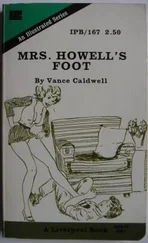The work still poured in and she had to undertake double shifts; one week she was on call all night before starting her day shift. By spring, there were signs that the war in Europe would end very soon. The more optimistic thought the Battle of the Bulge might prove to have been the last stand-to engagement. The papers suggested that Germany was cut to pieces by the forces of both east and west. Hilda wondered how much retribution the victors would exact. She hoped not nearly as much as they took after the previous war. That was undoubtedly a contributory cause of this war. Surely, there would never be another? These questions she had to ask herself because she needed to find Otto, Karl and Renate. She wanted to get back to Hamburg as soon as she could.
In May, the war ended. It was something of an anti-climax to the BP workers after the relentless activity of the previous three years, and Hilda felt rather at a loss. She had no idea if Thornton had more plans for her, or if she was free to pick up the threads of her own life, whatever that turned out to be. In any case, she felt very strongly that he owed her some help, and she decided to telephone him. Knowing calls were monitored, she simply told him her days at work were ending and she wanted, indeed needed, to see her family, especially her son. She couched it in terms, which were clear enough to him, but in a way, that no one could suspect that it meant a return to Hamburg.
The following week several Wrens and civilian staff gathered at Hut 13 where they received a stern lecture from a brigadier. His message was simple. They might be leaving Bletchley, but what they had done during the war, and indeed the fact that they had worked at BP at all, must never ever be divulged to anyone, anywhere or at any time. If people asked what their war work had been, they were to describe it as routine secretarial work; the nature of that work itself must remain completely confidential. The venue, too, must remain top secret. They had been warned. The full force of the law would come down on anyone divulging BP’s existence.
After they agreed one by one to this commitment by signature and oath, they were free to leave, subject to the needs of the slowing-down operation. The work being done at BP was far from over, as a realignment of Europe was now on the political agenda. However, the technical German translations had trickled down to nothing, leaving Hilda with empty days. It was time for her to return to London.
She left BP during the first week of June and made for the capital to seek out Dynes and Thornton. The centre of the city was alive with flags, and people wore broad smiles of relief. She encountered a group of American naval ratings having the time of their lives with English girls hooked on their arms. Crowds of people of different nationalities and wearing a variety of service uniforms were congregating, along with policemen, special constables and members of the home guard. The bars were full, as were the cafés, all doing a roaring trade.
As she made her way to the MI6 offices, she passed a twelve-piece Salvation Army band belting out Onward Christian Soldiers at full volume while bonneted women handed out paper cups of hot tea. It seemed that the country was enjoying an extended victory, even though the war in the east had not concluded.
The familiar building still had sandbags around the front entrance. Hilda climbed the steps and informed the unfamiliar young woman at the desk that she had arrived. When asked for her name, the devil was in her head.
‘Tell Mr Thornton that Frau Hilda Richter has arrived.’
She hid a smile as the receptionist took a sharp breath. A German woman at MI6, and so soon after the end of hostilities; whatever next? However, the girl kept such thoughts to herself, though she gazed open-mouthed as Hilda swept past her, brushing aside her offer of directions to Thornton’s office with a crisp, ‘I know the way, thank you.’
She received a far warmer welcome from Thornton himself.
‘My dear Hilda, do come in,’ he said, striding forward to greet her and shaking her hand warmly.
‘Thank you. I trust you are well.’
‘Yes, very well thank you, and so relieved that this dastardly war is over.’
‘I certainly am too.’ She looked around the room. ‘Mr Dynes, is he about?’
‘No, he’s gone to Birmingham today. Anyway, I am delighted to see you survived the war in one piece. It’s been a while since we met.’
‘Survived? I have spent the past three years closeted in a hut! Except for a couple of concerts, we managed to organize.’ She sat down on a chair facing Mr Thornton.
‘I’m sure everyone enjoyed that, even though they were a captive audience, as it were.’ They laughed, and Hilda felt some of the stress flow out of her muscles.
‘Yes, captive and sworn to secrecy. I’m sorry I can’t tell you what the work entailed.’
He gave a patronising smile. ‘I know. I sent you there, remember.’
‘Yes, but I don’t even know the full picture; how we received messages at such a rate, and which ones had to be translated; but there I go again, in breach of the Official Secrets Act already.’
They laughed again, then Thornton stood up and walked over to the window. When he turned around, he looked a like a dark ghost. ‘What can I do for you, Hilda? I know you too well to assume this is not purely a social call.’
Her smile accompanied a nod of her head. ‘I was wondering if you would have any more use for me,’ she said slowly, ‘though I’m not sure what that could possibly be.’
‘I am afraid we will have to part company in due course,’ he said. ‘But I am certain you have more pressing matters on your mind, not so?’
‘Well… there is just one favour I need to ask of you.’
‘And that is?’ he asked as he cocked his head.
Hilda could hold back no longer. ‘I need to get to Hamburg,’ she said rapidly.
‘I see.’ Thornton stroked his chin. ‘To trace Otto, and your brother-in-law and his wife?’
‘Exactly.’
Thornton opened his desk diary and turned a few pages. She wondered if he could pull this rabbit out of his hat. She felt sure it was no more than a thin chance.
‘You know Hamburg will not be as you left it?’
‘You mean the bombing?’
‘Yes, but do you know the extent of the bombing?’
‘No, I can’t really imagine.’
‘The docks were at first our main target. Any device that did not hit the quays hit the city. No pilot wanted to waste a bomb over the sea. Then a little later the city became the main target.’
‘I don’t care. I need to get to Hamburg,’ she pleaded.
‘I can see you’re quite determined.’ He continued to leaf through his diary, then he lifted his telephone.
‘Hello, Transport? Yes, Thornton here. Anyone going to Hamburg? Let me know when one is leaving. I have a live package.’ He replaced the telephone.
‘There. If they cannot get you there, no one will. I suggest you stock up on groceries before you go. It will be very rough over there. It is likely nothing will be functioning properly, there are no shops, and provisions of any kind will be scarce. You will have to work quickly and get back promptly. It’s not a place for the fainthearted – but you were never that.’
She should have been downcast by his account of her city’s fate, but she retained a hope of finding some semblance of life in and around Hamburg, and she needed to see for herself.
‘Perhaps you can leave notes and forwarding addresses,’ Thornton suggested. ‘And you never know – perhaps Otto will be heading there too. You could even bring him back with you.’
‘That would be ideal,’ she said, her hopes buoyed up by his optimism.
‘Come back at three this afternoon and see if we have made any progress.’
Читать дальше












